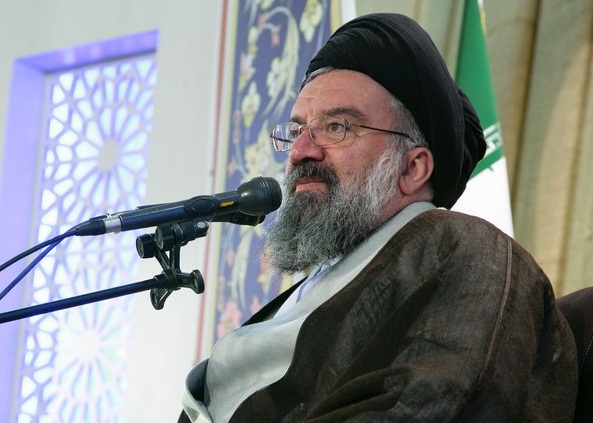
RNA – Speaking at a conference in Shahrekord, Ayatollah Ahmad Khatami stressed that the most important method that the enemies seek to influence Iran is through cultural influence.
“The West, and especially the United States, has explicitly stated that they can’t solve their problems with Iran through military occupation because Iran’s structure is such that military occupation is ineffective. Thus, the enemies have attempted to undermine Iran through a cultural invasion,” he added.
He emphasized that if Iran’s cultural wall is cracked, its Islamic system of government will crack and added that the enemies’ plan to influence Iran has three parts – the first part is through cultural influence which involves weakening the peoples’ religious beliefs and the value of these beliefs.
“The second part is through economic influence which exerts pressure on our people through the imposition of sanctions, economic recession and factory and manufacturing closures,” he said.
Ayatollah Khatami continued, saying that the third part is through political influence and through this, the enemies seek to destroy Iran’s Islamic government, its values and the adherents of this system.
“Therefore the enemies want to isolate and discourage our values to achieve their goals,” he said.
The member of the Supreme Council of Islamic Seminaries stated in regard to the enemies’ influence, sometimes the enemies are apparent and sometimes they are hidden and explained that the apparent enemy conceals their animosity but the hidden enemy not only doesn’t express their animosity publicly, but rather they also express friendship.
“Although, the apparent enemy also attempts to spy on their target in order to influence them, usually their influence is hidden,” he added.
Tehran’s Friday prayer leader said there are about 200 verses in the Holy Quran on recognizing the enemy and added that all of the verses in regard to Satan, the infidels and the People of the Book and also the hypocrites are related to recognizing the enemy and this demonstrates the importance the Quran gives to being aware of their danger.
Aatollah Khatami said that the term “influence” is hidden in regard to the enemies and in the Holy Quran, the term “hypocrite” is given to the hidden enemies.
"We must be careful because the hidden enemies don’t portray themselves as friends and don’t seek to interfere in the decision-making centres of the Islamic government," he added.
111/112